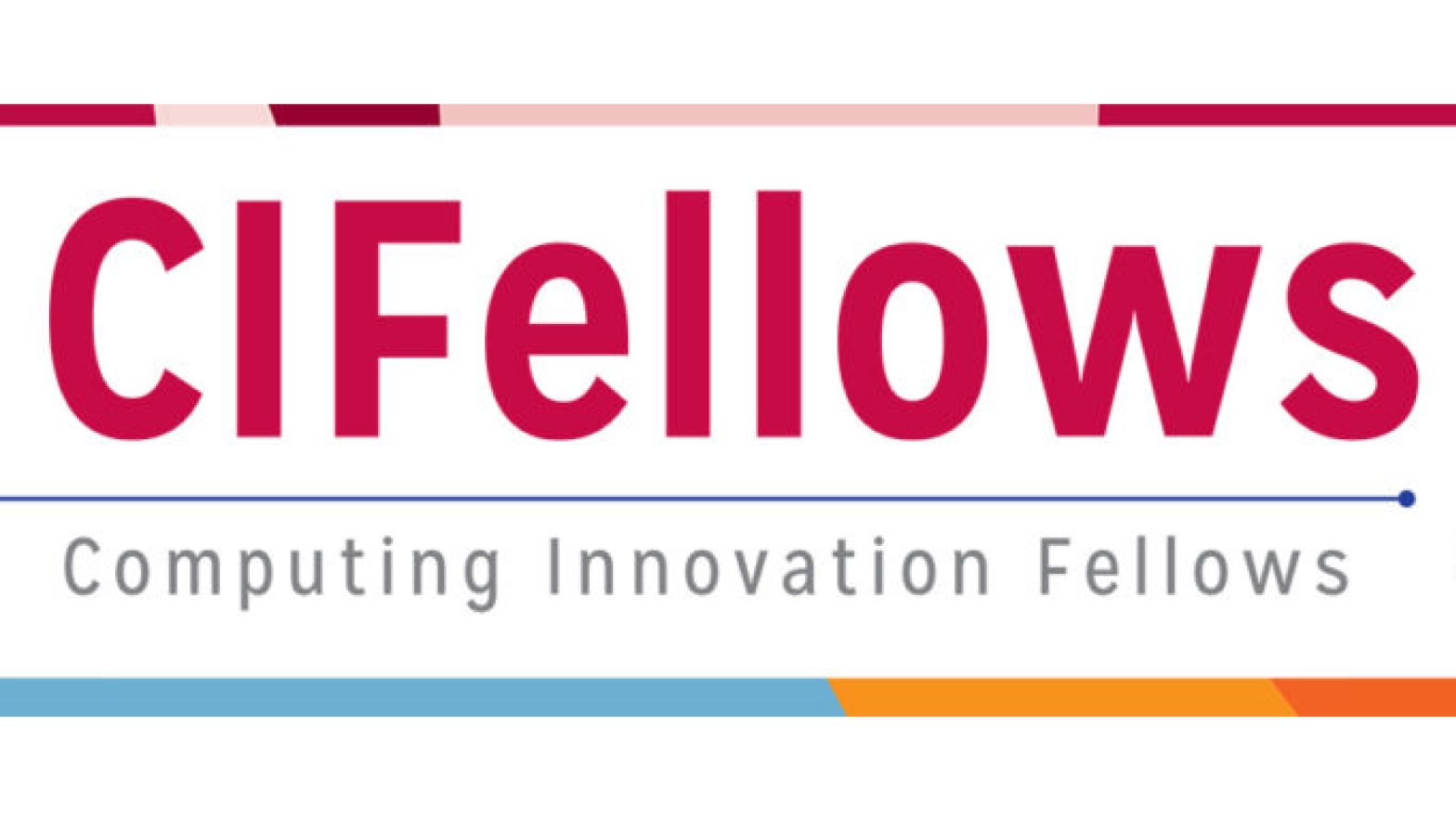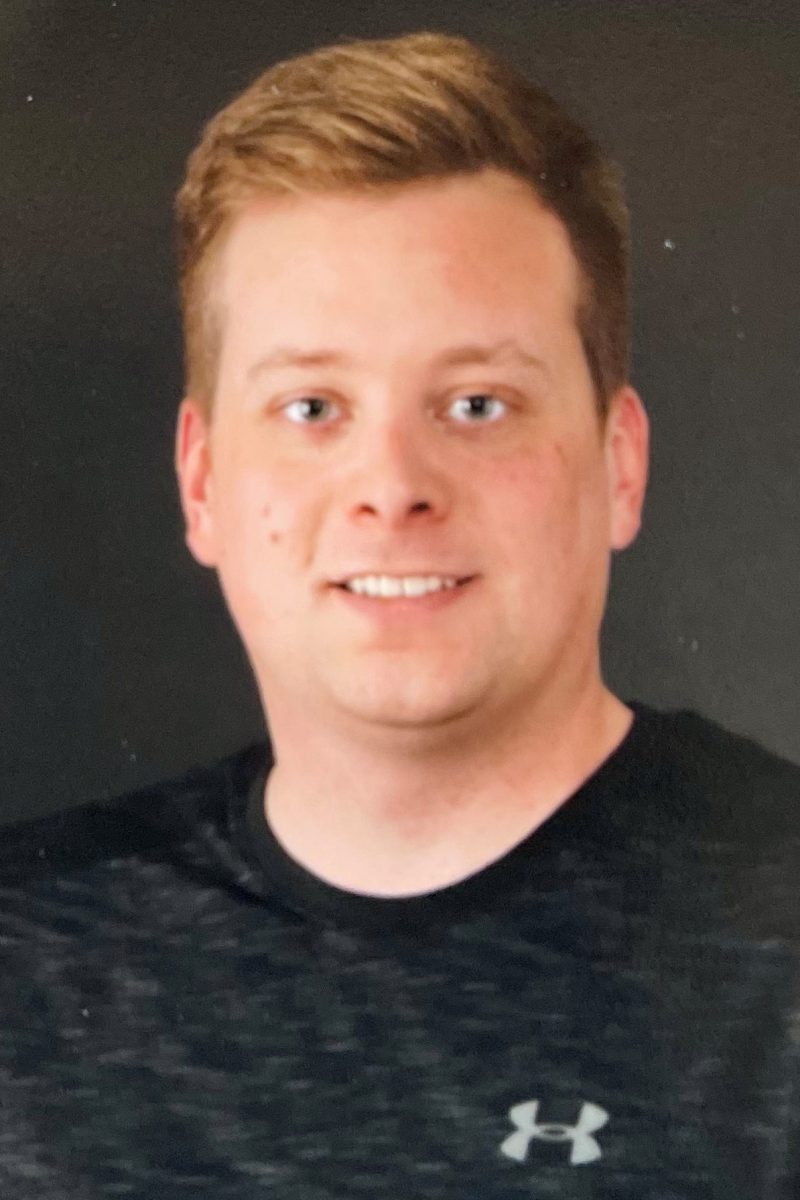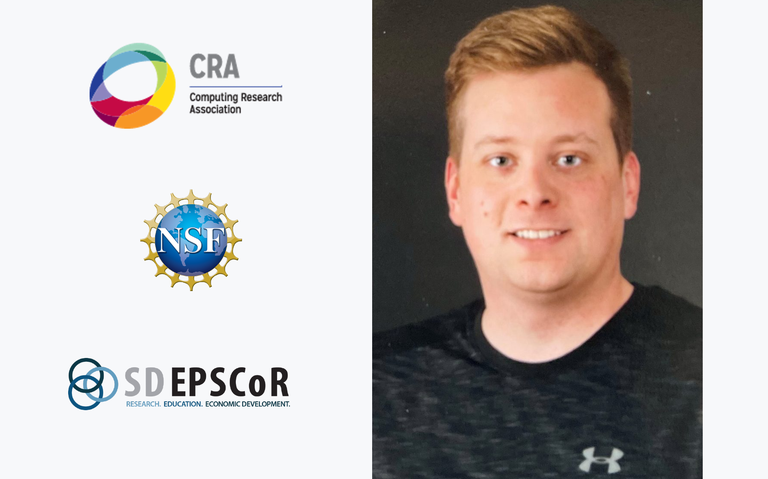Vincent Peta Chosen as 2021 CIFellow

The CIFellows program, which is funded by the Computing Research Association and the Computing Community Consortium, was created in response to the COVID-19 pandemic to assist recent Ph.D. graduates facing unexpected challenges in securing research positions. Previously, the CIFellows program was open for applications between 2009 and 2011 when the economy was in a recession.

Dr. Vincent Peta, a postdoctoral fellow at the University of South Dakota (USD) Sanford School of Medicine, was awarded a spot in the highly selective National Science Foundation’s Computing Innovation Fellows (CIFellows) program, designed to help recent Ph.D. graduates continue research despite COVID-19.
Peta is the first from South Dakota to be awarded this fellowship. In 2021, about 240 people applied to the CIFellows program, and 69 were accepted into the 2021 class.
Dr. Etienne Gnimpieba, in collaboration with Dr. Jose Pietri, will mentor Peta in the program at the USD Sanford School of Medicine. According to Gnimpieba, an SD EPSCoR Track-1 researcher, “This fellowship is a wonderful opportunity that emphasizes the need to bridge computing and bioengineering.”
Although mainly involved in the NSF Track-2 project, Peta has also helped with the SD EPSCoR NSF Track-1 project, helping run the first version of the bioinformatics workflow for SRB (sulfate-reducing bacteria) pangenome data analysis in collaboration with Dr. Rajesh Sani’s lab at South Dakota School of Mines and Technology (on the XSEDE high-performance computing cluster). This is part of the bioinformatics goal and data management task in Track-1 (to populate the Biofilm-KIDS system with biofilm organism genomic information), and Track-2 (to add new dataset for machine learning model development).
This pangenome task is playing a key role with the 2021 IEEE CBEAS (Computational Biofilm Engineering and Application) international workshop where Peta will be working on the organization.

“The current CIFellows project will be very useful to both projects because the protein structure modeling is a core bioscience issue with large applications,” Gnimpieba added.
Originally from Mitchell, South Dakota, Peta started his undergraduate degree at South Dakota State University (SDSU) in fall 2010 majoring in microbiology and graduated in fall 2014. He also earned his doctorate in microbiology in 2020 from SDSU, and worked with Indigo Ag and Novozymes North America during his doctoral program as part of the SDSU lab’s industry collaborations. He enjoys the outdoors and trying out new cooking recipes.
Q&A with Vincent Peta
How did you decide to apply for this award?
“We thought it would be an opportunity for me to get more experience in grant writing and, also, potentially in the areas of data science and computational biology, which are areas I do venture in, but still don’t have a lot of experience in. Being from a biology background, we do use computers in our daily work, and we are seeing a huge movement of biology into a more computational form with huge amounts of data driving projects and collaborations between different labs and areas of research. This is huge when you think of all the ways the data must be looked at and processed ― and no one person or lab can do it all. It makes you think of all the possibilities one could achieve when you bring two different areas like this together.”
What do you hope to gain from the experience?
“I really am excited about this opportunity, not just from a research perspective but also from a learning perspective. Having the opportunity to work with researchers in both areas and learn how to build and operate a lab ― as well as learn new techniques and getting to meet people I otherwise would not have met ― I think, is simply amazing.”
The aim is to leverage a machine-learning framework to develop a systems biology predictive tool with a custom data mining workflow that will be tailored to protein structure prediction. The overall goal is to try to see how immune system-related proteins from insect vectors could impact the possible infection of these insect vectors and spread of microbial pathogens in the environment and to humans.
Mentor: Etienne Gnimpieba, Assistant Professor of Research at USD
 National Science Foundation RII Track-1 Project:Expanding Research, Education and Innovation in South Dakota
National Science Foundation RII Track-1 Project:Expanding Research, Education and Innovation in South Dakota